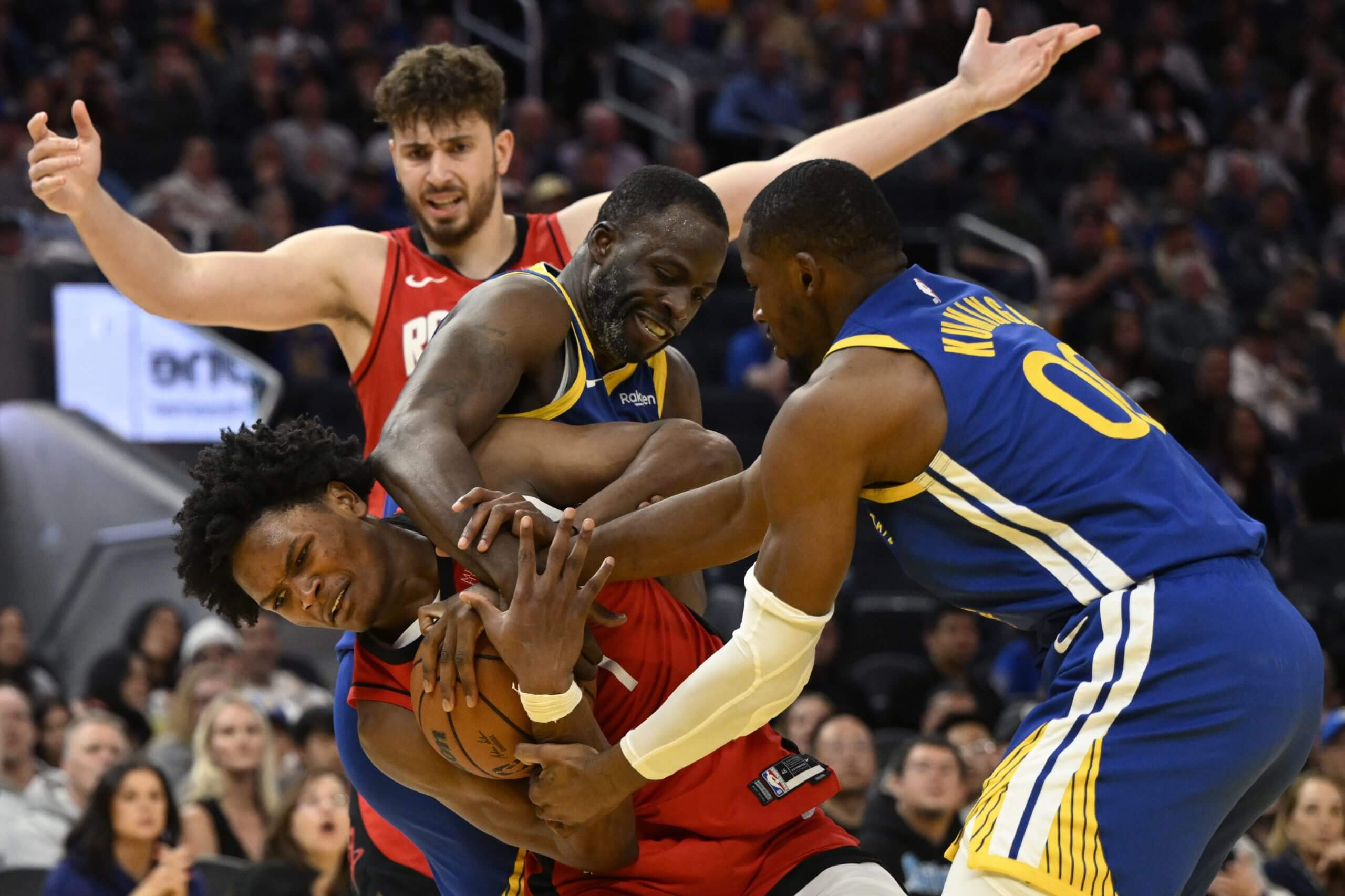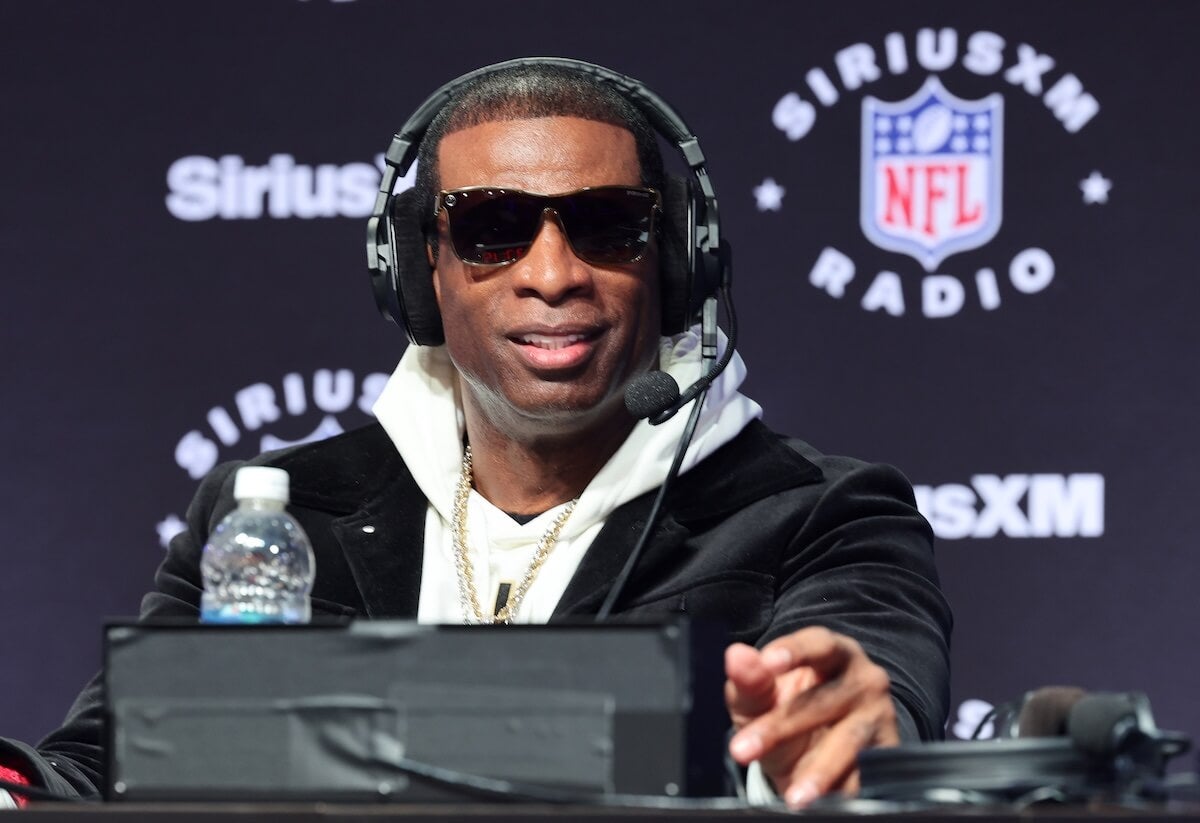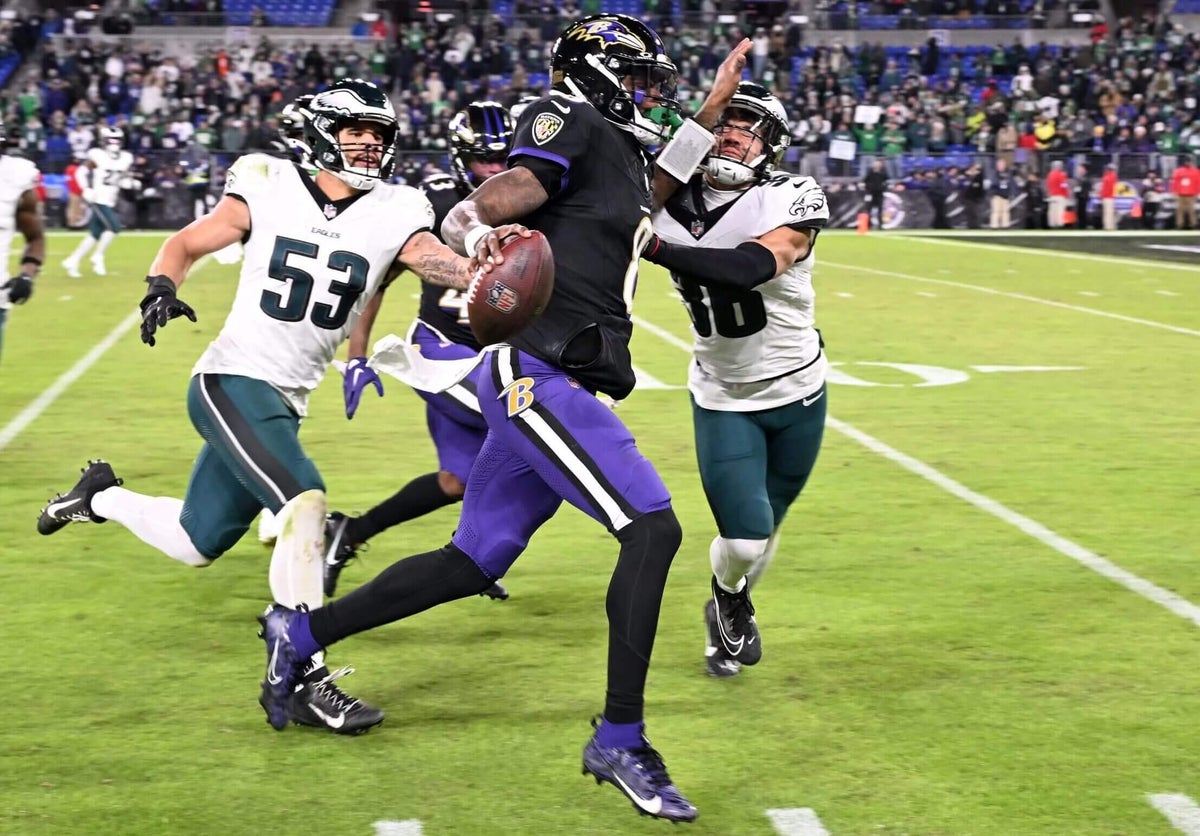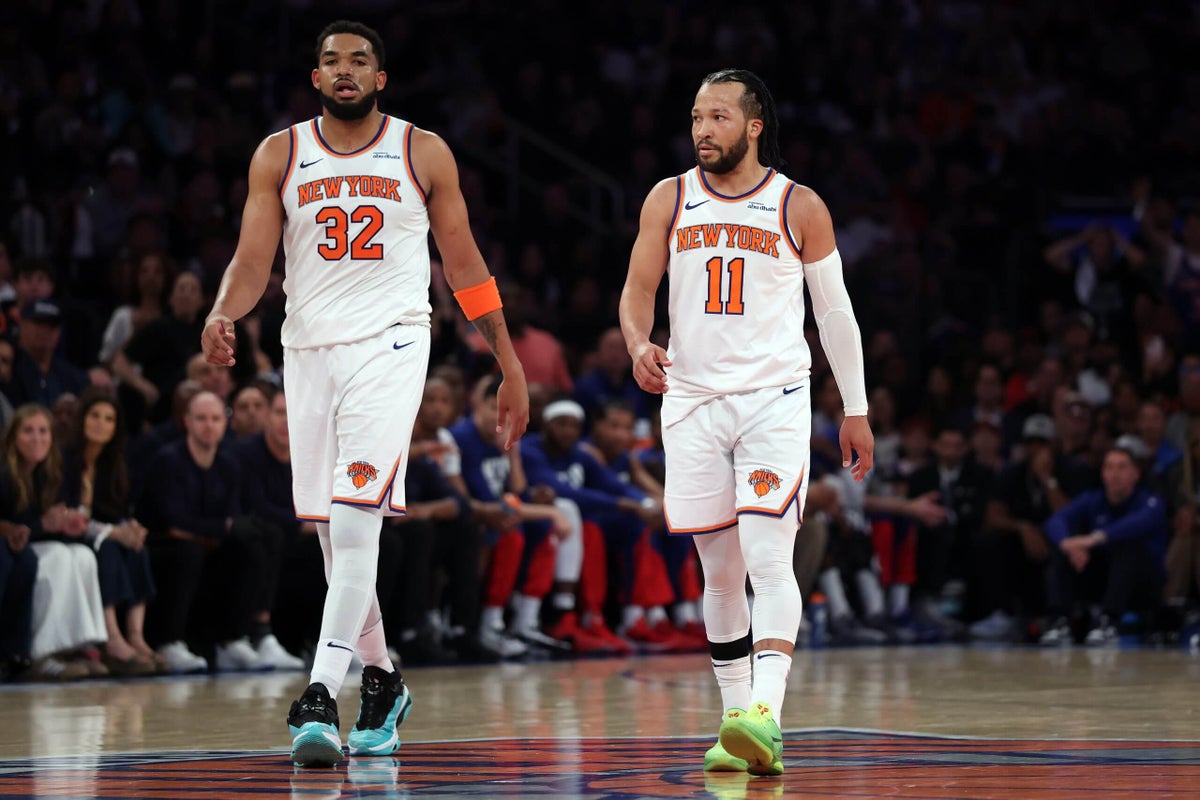By Eric Koreen, Fred Katz, Kelly Iko and Law Murray
Before Game 2 of his team’s series against the Los Angeles Lakers last week, Minnesota Timberwolves coach Chris Finch spoke honestly about the nature of the NBA playoffs.
“If you look around the playoffs right now, it’s super physical,” Finch told reporters. “To me, they’ve gone way too far on the physicality. I’m not complaining about the way our series, in particular, has been reffed. I’m just saying in general, I … think it’s gone too far. It feels like it’s physicality on purpose. It’s disrupted the flow. If there’s not a fight in that Houston-Golden State series, I’d be surprised. That thing feels like it’s on the edge every single time.”
Clearly, the style of game has changed. Five series are being played at dramatically slower paces than the league’s slowest team, the Orlando Magic, played in the regular season. There was a fracas that earned the Nuggets and Clippers six technical fouls on Sunday, while the Pistons-Knicks and Rockets-Warriors series have been notably chippy, with technicals and flagrants frequent. Ask the Celtics about how the Magic guarded them and you might get an earful.
The Athletic’s Eric Koreen, who has been watching from home, Kelly Iko, who is covering the Rockets-Warriors series, Law Murray, who is covering Nuggets-Clippers, and Fred Katz, who is covering Knicks-Pistons, got together to chat about what they’ve seen.
Broadly speaking, have you noticed more physicality being allowed by the referees in the playoffs, and have you enjoyed the shift?
Iko: Have I noticed? Without a doubt.
I’ve seen an uptick in conversations from folks in the NBA praising this year’s playoffs and the amount of physicality allowed or tolerated. And I understand why people are excited. I’ve used the phrase “attached detachment” before in an NBA context, but it applies to all professional sports. There’s an elation that comes from witnessing heightened physicality (and potential violence in some instances), enjoying the competitive aspect of it while not being in danger yourself.
That’s what these playoffs have been. I’d be a hypocrite to say I don’t enjoy physical play. But having extensively covered this Rockets-Warriors series, I’d say there’s a limit. It would be one thing if there was some sort of runway up to the postseason — officials letting more go in the second half of the year — but it’s been so sudden that it’s a surprise.
Katz: I’ve noticed it, and I am ambivalent about it. On one hand, I enjoy 10 world-class athletes battling for loose balls, fighting for rebounds, knocking others around the court in the hopes of winning a game. Healthy, sportsmanlike contentiousness is good for the playoffs.
However, the way this is happening has the vibe of last year’s midseason adjustment, when the NBA decided to enforce foul rules differently and turned the game more physical with time still to go in the regular season. That change caught several teams by surprise. And while this one has a cleaner delineator (the playoffs are always more physical than the regular season), the chasm feels larger than normal. The sport seems different. And teams and players, based purely on conversations I’ve had with them, seem caught by surprise in a similar fashion to how they were a year ago.
A more physical game can be more fun, but the postseason should somewhat resemble the regular season. Otherwise, what’s the point of a regular season? Right now, the gap is wide.
Koreen: I want to be careful in crediting the physicality with producing the compelling basketball we have seen in the playoffs. As always, it is how much the players care, combined with the ability for teams to specifically scout their opposition and tailor their game plans accordingly, that plays the biggest role in the improvement from the regular season to the playoffs.
With that said — and maybe it is because I spent so much time focusing on the worst of what the league has to offer — I have loved playoff basketball. The missed call at the end of Knicks-Pistons Game 4 was lamentable, but missed calls happen. Overall, the extra grime, which necessitates an extra level of offensive execution, has added to the product.
Murray: There’s definitely more physicality. And I not only enjoy it, I expect it. Every year around the All-Star break, we reach a peak of conflict to figure out why offense feels like global warming. But nature is healing in the spring!
I’d argue players have as much to do with it as the officials. The Clippers were top-five in total points allowed this season. Some teams have already been conditioned to bring out an increased level of physicality. Now, it’s the playoffs. There are no back-to-backs, there are no cupcakes on the schedule looking toward the lottery, and there’s no lack of familiarity. This happens every year, and I’m amused by how shocking it is for some viewers.
Pick a team most helped by the added physicality, and one that it hurts most.
Iko: Physicality helped Houston the most. It’s been their identity for the last two seasons under Ime Udoka. Any team that relies on its defensive versatility and intensity to win games has to benefit from added physicality. Now, it sounds somewhat ironic given the Rockets are trailing 3-1 in the series, but Houston has committed the fourth-fewest fouls per game amongst playoff teams. During the regular season, they were just outside the top 10.
It’s hurt Detroit the most. The Pistons, like the Rockets, are on the brink of elimination, but Detroit leaned too hard into that brand of basketball. That’s an especially difficult task to complete when Isaiah Stewart, the beacon of bullyball, has been out injured. The Pistons have opened an emotional door, getting too invested in winning some of these skirmishes and having less control over the actual basketball going on.
Katz: It will help the Thunder the most. Their greatest strength just became stronger and their greatest weakness became less relevant. Despite all the accusations hurled at supposed free-throw merchant Shai Gilgeous-Alexander, the Thunder do not live at the line. It’s quite the opposite. No one had a less favorable free-throw differential during the regular season. Now, the league’s best defense can bump into opponents with fewer repercussions.
I’ll say it hurts the Lakers the most. No team goes smaller than Los Angeles and switches more frequently with like-minded defenders. The Lakers led the NBA in free-throw attempt rate; that rate falls in these circumstances. We think of physicality as affecting only defense, but it hits the other side of the ball, too. The Timberwolves are shoving around Lakers defenders with screeners and drivers, creating buckets for themselves. It’s a significant reason Minnesota is up 3-1 heading into Wednesday’s game.
Koreen: Long term, give me the Oklahoma City Thunder, as if they need the help. The Thunder already had the best defense in the league in the regular season. If Lu Dort, Alex Caruso and Jalen Williams are allowed to be even more handsy? Watch out.
Meanwhile, this could hurt Cleveland down the road. I love the Cavaliers’ roster. But the more reliant you are on smaller guards to score, the more physicality could hurt you. The same can be said for teams lacking depth — the Lakers, Nuggets and Knicks.
Murray: It helps the teams that are already physical and embrace physicality. The Magic play the least aesthetically pleasing basketball in the NBA. They allowed the fewest points in the league, while only the Nets and Hornets averaged fewer points scored per game than Orlando. They can’t hit the broad side of a barn, and yet here they were making the Boston Celtics sweat out a quarterfinal series. The Thunder play defense like the Legion of Boom Seattle Seahawks used to cover wide receivers. The refs can’t call every pass interference and the Thunder know it.
On the flip side, the added physicality hurts the teams that can’t adjust. Look no further than the two eighth seeds. The Heat and Grizzlies gave the people nonchalant regular-season basketball, and got thrown out the club as a result.
Has there been a moment or series that has crossed the line for you?
Iko: Game 4 in Rockets-Warriors was it for me.
The first three games felt like it was gradually building up to a boiling point, which happened on Monday night. At one point during the second quarter, my friend Monte Poole, who has covered the Warriors for years, leaned over and shouted, “Can we just get back to basketball?”
There was just so much going on in that game that had nothing to do with anything meaningful. Steph Curry taunting Dillon Brooks, who incited a mini riot. Jimmy Butler and Brooks jawing back and forth, leading to an elbow to the throat and slight shove to the ground. Draymond Green and Tari Eason getting tangled up, grabbing at legs and stepping over each other. Big men Steven Adams and Quinton Post got in on the action. At one point, there were more stoppages to review for hostile acts than made buckets. It was a complete mess.
Katz: Let’s take the final play of Knicks-Pistons Game 4. Cade Cunningham missed a jumper. Tobias Harris shoved Josh Hart away from the ball on the rebound attempt, which the league ruled a correct no-call in its last two-minute report. The ball trickles to the corner, where Tim Hardaway Jr. picks it up. Hardaway rises for a jumper as Hart closes out and bumps him. Again, there’s no call, and the Knicks win by one as Hardaway’s jumper doesn’t hit the rim. After the game, crew chief David Guthrie acknowledged that referees should have called a foul on Hart. And in a vacuum, Guthrie is correct. Hart brushed into Hardaway when he was going up for the shot, a textbook foul.
But here’s the problem: If you listed the most intrusive non-fouls that could have been fouls throughout that game, I’m not sure the Hart-on-Hardaway play even makes the top 10.
To be clear, I thought that game was well officiated, fair and consistent for both sides, which is the most important part of the job. But when the officials announce after the game that they missed one call at the end, even though that no-call was consistent with the way they called the game all night, there may be a discrepancy.
Koreen: There were some moments early in the Rockets-Warriors series that barely resembled basketball. As Kelly noted, that continued on Monday. We shouldn’t be surprised, given some of the involved parties, but that series started off as a slog. It has been a reminder that you only want to go so far in bringing back the ’80s and ’90s.
Beyond that, while I have some specific complaints about officiating, I haven’t found play to be dirtier than in other postseasons. I didn’t love Rudy Gobert delivering a forearm shiver to LeBron James’ head after James threw his hip into him on a box out, but I don’t think that’s a huge outlier from playoffs past. Gobert got a flagrant, as he should have.
Murray: I love telling people that I was a referee as part of my work study as an undergrad. I know how hard officiating a game is. But I also know players pick up on patterns of how certain refs facilitate games.
I’m not comfortable with how inconsistent some of these games get, or how officials have to overcorrect to regain control of a game. I don’t like how you know Draymond Green isn’t going to get ejected despite putting out a mixtape of physicality that is usually only available on pay-per-view. That’s the physicality that crosses the line.
The officials have to maintain the integrity of the game. Establish what is permitted, warn players (and coaches) to play basketball, and hold them accountable accordingly. We all see what’s happening out there.

Would this style of playing becoming the standard fundamentally change how teams build their rosters? If so, how?
Iko: It would change how teams approach scouting. There might be more of an onus on seasoned players who play multiple positions and foul more. As far as current NBA players go, the modern floor-spacing big, more of a finesse type, could be phased out in favor of the traditional rim-to-rim bruiser — a world with more Steven Adams and less Nikola Vučević.
Katz: Maybe teams would have to prioritize Nos. 11 through 15 on the roster more. This is the age of rest and load management. If games are more exhausting, then it’s possible load management or legitimate injuries increase, and that player on a two-way contract you haven’t heard of could end up in the rotation.
Koreen: A more physical standard would only increase the need for physical, multi-positional defenders. Players like that, especially ones who can shoot, are already prized. With some rules loosened, their value would rise.
I also think more traditional bigs would gain value, but not because teams would simply be dumping the ball into the post more often. Rather, excellent screensetting would become crucial in freeing up perimeter scorers. The value of shooting wouldn’t change, but on- and off-ball screens become so important at this time of year.
Murray: That should have already been the case. You build teams with two seasons in mind: the grind of an 82-game regular season, and the grind of the playoffs when only one team will win 16 games. You need skill, but you need the positional size to go with that skill. Defense validates your lineups. And the equalizer to height-weight-speed are players who play hard and through contact effectively on both ends.
No one is bringing the goon back to rosters any time soon, but you’re not building a team that can’t bump either. Just ask the Phoenix Suns how far that can get you.
In part, the added physicality seems to be an answer to a general complaint about how the game has been officiated over the last decade-plus. Is the change good or bad for the league?
Iko: It can be good, given the right parameters.
One of the biggest complaints from people who subscribe to the plummeting ratings argument is that today’s game is too soft, with foul-grifting at an all-time high. Dialing some of that back, while celebrating controlled physicality, would do the league some good, I think.
The officials have done a solid job in preventing some of these dust-ups from spilling over. Now, you could argue that players aren’t really “about that life” and are just getting in each other’s faces for theatrics. But I’ve enjoyed this playoff campaign in ways I didn’t in recent years, and that’s directly correlated to added physicality.
Katz: I’m into more physicality, in general. My only critique is that it should be explicit. I sense that players are a bit taken aback by the enforcement of the rules now. Every rule change for the past two decades has been in favor of the offense. The league wouldn’t be the only ones to believe it’s gone too far in that direction. But turning basketball into boxing isn’t the only way to help a defense. The NBA could bring back some of the old rules. Allow handchecking again or get rid of defensive three-seconds.
Koreen: It’s fair to say that what is allowed in the regular season has to be closer to what is allowed in the playoffs, and vice versa. As I stated above, there are reasons for the difference in styles that go beyond what is being called and what is not, but we have probably veered too far toward allowing physicality. As well, there’s a lack of consistency within games that is troubling, and that is often what leads to melees and complaints.
Overall, I think this is good for the league. Give me a little more sense of rivalry, competitiveness and, sure, bad blood.
Murray: It’s fine. There will be complaints about the game no matter how it’s played. If teams were averaging 120 points per game, there would be complaints. If teams were struggling to get to 100 points, there would be clamors for rule changes. Defense is physicality. I see teams playing hard and realizing that if they don’t, they get to book Cancun shortly.
(Top photo: Luke Gales / Getty)




